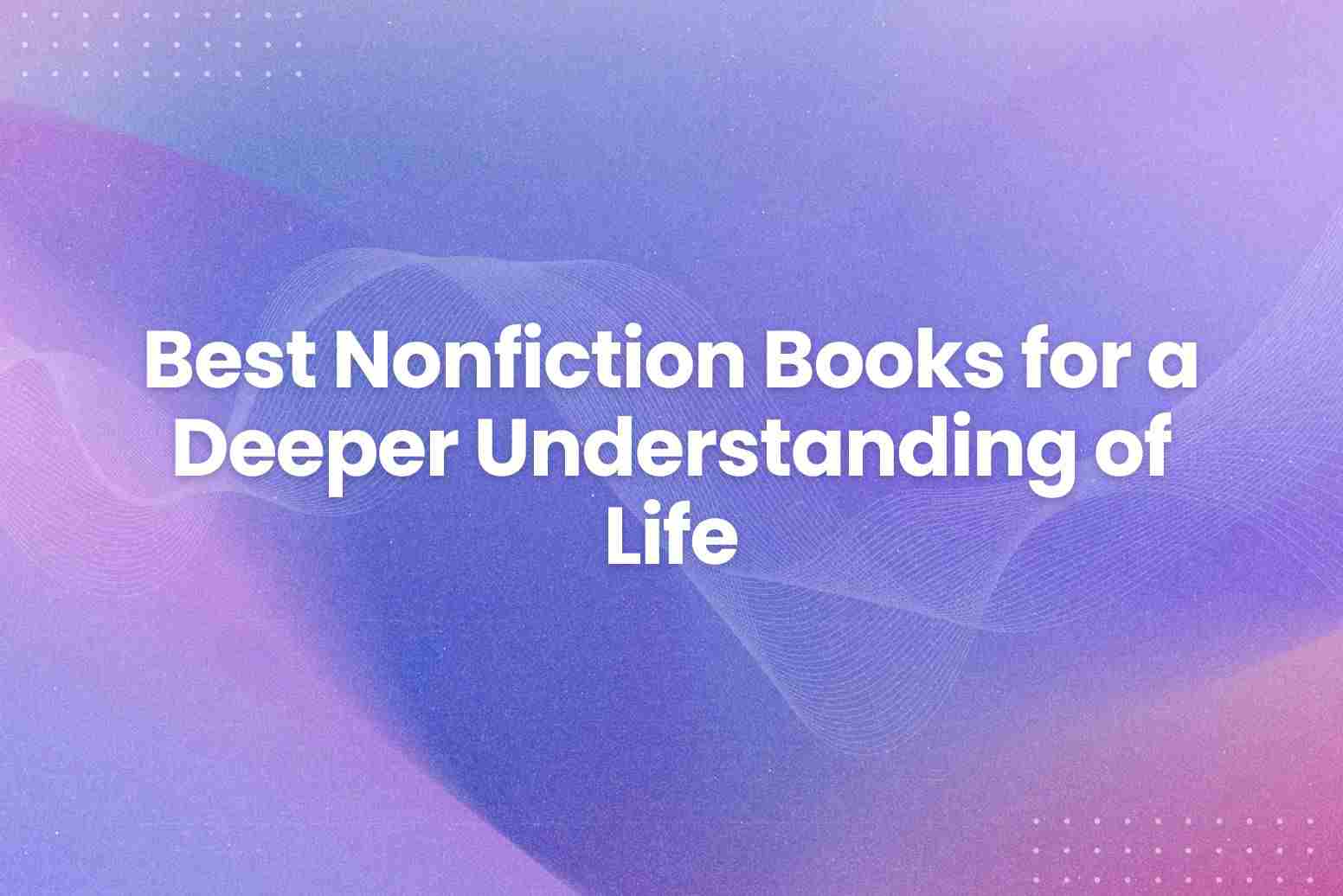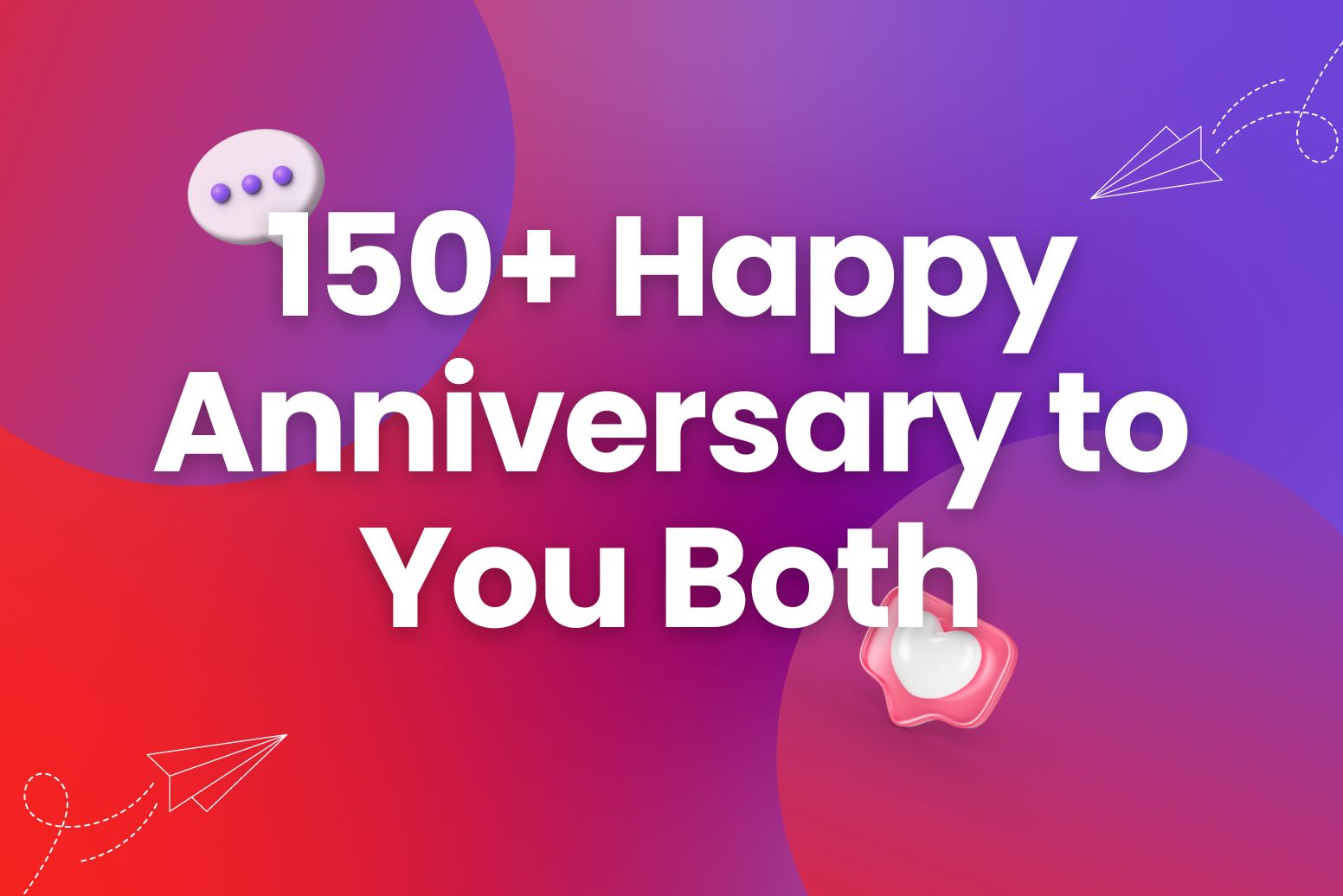The best nonfiction books can impart knowledge on important topics, present insightful viewpoints, or just provide us with entertaining views into the lives of others. Whether you’re interested in history, science, self-help, or biographies, there’s a wealth of extraordinary nonfiction books waiting to be explored. We provide the best nonfiction books ever written that you must read. Read and feel the inspiring power of the words.
Learn something new every day with Arvin, get book summaries of the latest and greatest nonfiction books. Arvin is an AI assistant tool designed to help you with all kinds of questions and tasks. For example, you can use Arvin for best book recommendation and making book summaries. Get started by exploring Arvin today!

The Roads to Rome: A History of Imperial Expansion by Catherine Fletcher
Inspired by original research and filled with color and drama, this is an exploration of two thousand years of history as seen through one the greatest imperial networks ever built.
“All roads lead to Rome” is a medieval proverb, but it’s also true: today’s European roads still follow the networks of the ancient empire–and these ancient roads continue to grip our modern imaginations as a physical manifestation of Rome’s extraordinary greatness.
Over the two thousand years since they were first built, these roads have been walked by many different people. Crusaders and pilgrims traveled them, as did liberators and dictators. Tourists, writers, refugees, and artists have also walked these roads. As channels of trade and travel, these roads served multiple purposes. They were routes for conquest and creativity. Catherine Fletcher reveals how these roads transformed cultures. They also intertwined the fates of a vast array of people across Europe and beyond.
The Roads to Rome is a magnificent journey into a past that remains intimately connected to our present. Traveling from Scotland to Cádiz to Istanbul and back to Rome, the reader meanders through a series of nations and empires that have risen and fallen. Along the way, we encounter spies, bandits, scheming innkeepers, a Byzantine noblewoman on the run, young aristocrats on their Grand Tour, a conquering Napoleon, John Keats, the Shelleys, the abolitionist Frederick Douglass, and even Mussolini on his motorbike.
Reflecting on his own walk on the Appian Way, Charles Dickens observed that here is “a history in every stone that strews the ground.” Based on vibrant original research, this is the first narrative history to tell the full story of life on the roads that lead to Rome.
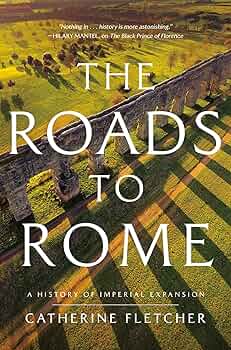
Code Dependent by Madhumita Murgia
AI is changing what it means to be human. This is the unrivalled investigation into the impact of AI on how we live now. Love it or loathe it, you can’t escape it. In Code Dependent, Madhumita Murgia, AI Editor at the FT offers a laser-sharp examination of how AI is changing our jobs, our lives, our futures and even what it means to be human. Through compelling storytelling, Murgia shares how AI is shaping individuals’ people, and what we need to do to reclaim our humanity. If you read one book about AI this year, make it this one.
Through the voices of ordinary people in places far removed from Silicon Valley, Code Dependent explores the impact of a set of powerful, flawed, and often exploitative technologies on individuals, communities, and our wider society.
AI is already changing what it means to be human, in ways large and small. In this work, Murgia reveals what could happen if we fail to reclaim our humanity.
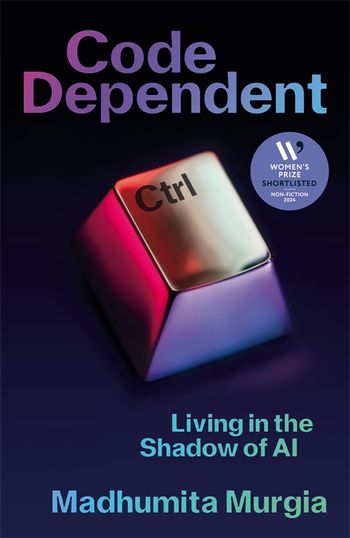
The Sixth Extinction by Elizabeth Kolbert
The Sixth Extinction: An Unnatural History is a 2014 non-fiction book written by Elizabeth Kolbert. The book argues that the Earth is in the midst of a modern, man-made, sixth extinction. In the book, Kolbert chronicles previous mass extinction events, and compares them to the accelerated, widespread extinctions during our present time. She also describes specific species extinguished by humans, as well as the ecologies surrounding prehistoric and near-present extinction events.
The target audience is the general reader, and scientific descriptions are rendered in understandable prose. The writing blends explanations of her treks to remote areas with interviews of scientists, researchers, and guides, without advocating a position, in pursuit of objectivity. Hence, the sixth mass extinction theme is applied to flora and fauna existing in diverse habitats, such as the Panamanian rainforest, the Great Barrier Reef, the Andes, Bikini Atoll, city zoos, and the author’s own backyard. The book also applies this theme to a number of other habitats and organisms throughout the world.
“To argue that the current extinction event could be averted if people just cared more and were willing to make more sacrifices is not wrong, exactly; still, it misses the point. It doesn’t much matter whether people care or don’t care. What matters is that people change the world. This capacity predates modernity.”
― Elizabeth Kolbert
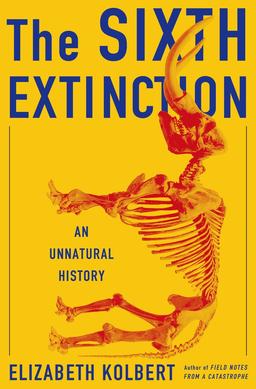
Sapiens: A Brief History of Humankind by Yuval Noah Harari
From a renowned historian comes a groundbreaking narrative of humanity’s creation and evolution, it explores the ways in which biology and history have defined us and enhanced our understanding of what it means to be “human.”
One hundred thousand years ago, at least six different species of humans inhabited Earth. Yet today there is only one—homo sapiens. What happened to the others? And what may happen to us? Most books about the history of humanity pursue either a historical or a biological approach, but Dr. Yuval Noah Harari breaks the mold with this highly original book that begins about 70,000 years ago with the appearance of modern cognition.
From examining the role evolving humans have played in the global ecosystem to charting the rise of empires, Sapiens integrates history and science to reconsider accepted narratives, connect past developments with contemporary concerns, and examine specific events within the context of larger ideas. Dr. Harari also compels us to look ahead, because over the last few decades humans have begun to bend laws of natural selection that have governed life for the past four billion years. We are acquiring the ability to design not only the world around us, but also ourselves. Where is this leading us, and what do we want to become?
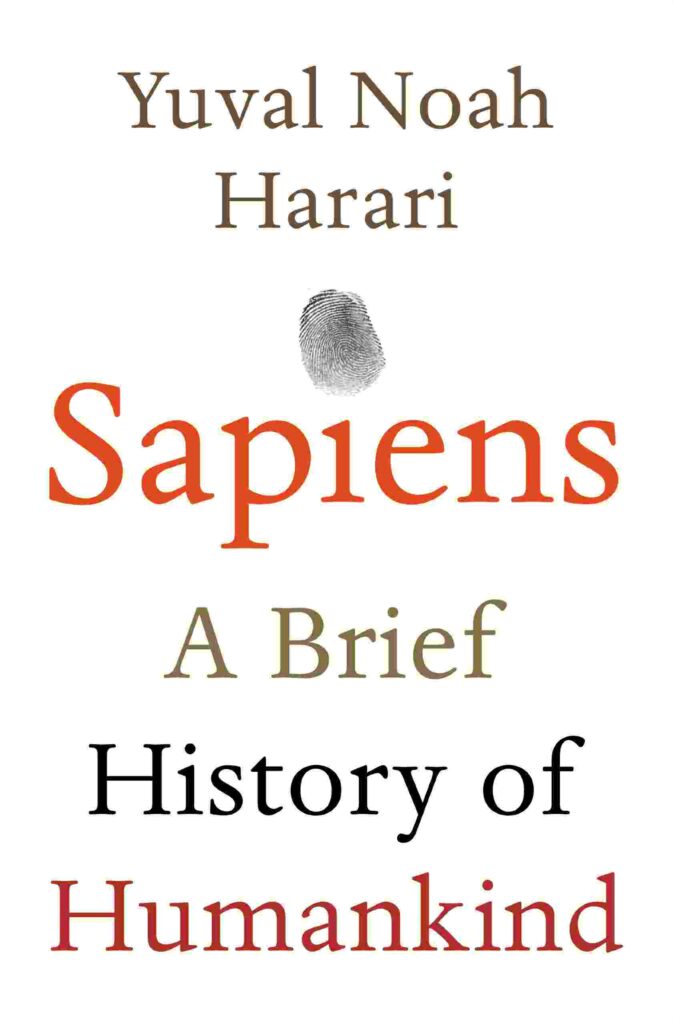
You may also like: 10 Best Selling Books of All Time to Discover Timeless Wisdom
Becoming by Michelle Obama
In a life full of accomplishments and meaning, Michelle Obama has become one of the most iconic women of our time. As the first African American First Lady, she helped create the most welcoming and inclusive White House in history. She also became a powerful advocate for women and girls, both domestically and internationally. Michelle dramatically altered how families pursue healthier and more active lifestyles. Additionally, she supported her husband through some of the country’s most trying times.
In her memoir, now available in paperback and as a Young Readers edition, Michelle Obama invites readers into her world. She chronicles the experiences that have shaped her. These experiences include her childhood on the South Side of Chicago. They also include her years as an executive balancing motherhood and work. Finally, she reflects on her time spent at the world’s most famous address.
With unerring honesty and lively wit, she describes her triumphs and disappointments. She discusses both public and private challenges. She tells her full story as she has lived it. This is conveyed in her own words and on her own terms. Warm, wise, and revelatory, Becoming is a deeply personal account. It recounts the life of a woman of soul and substance. She has steadily defied expectations and inspires us to do the same.
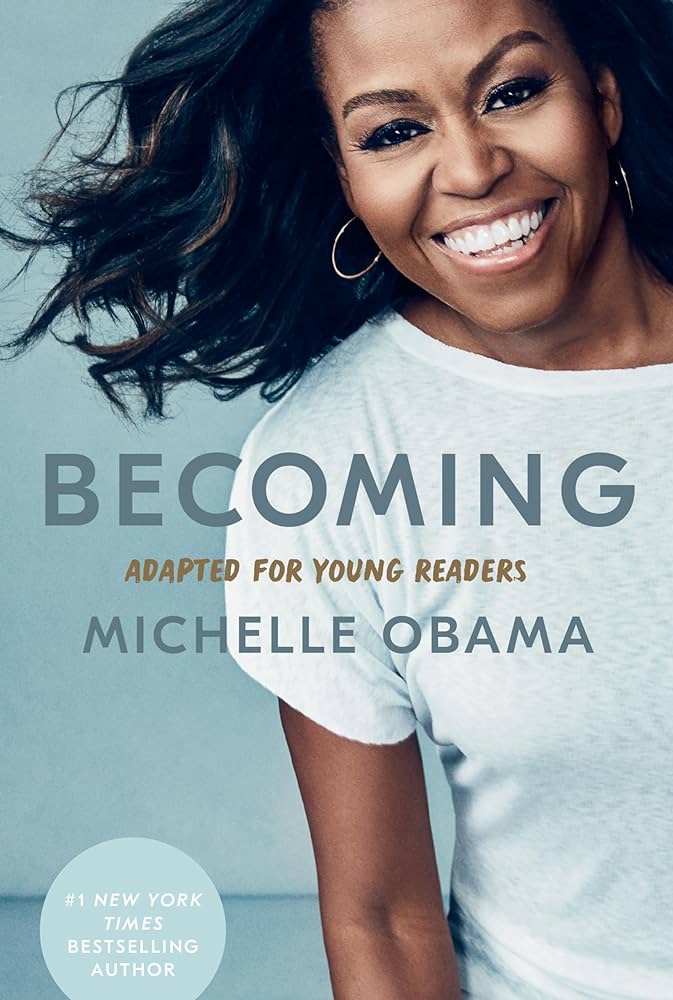
When Breath Becomes Air by Paul Kalanithi
When Breath Becomes Air is a non-fiction autobiographical book written by American neurosurgeon Paul Kalanithi. It is a memoir about his life and battling stage IV metastatic lung cancer.
What makes life worth living in the face of death? What do you do when the future, no longer a ladder toward your goals in life, flattens out into a perpetual present? And what does it mean to have a child, to nurture a new life as another fades away? These are some of the questions Kalanithi wrestles with in this profoundly moving, exquisitely observed memoir.
“That message is simple: When you come to one of the many moments in life when you must give an account of yourself, provide a ledger of what you have been, and done, and meant to the world, do not, I pray, discount that you filled a dying man’s days with a sated joy, a joy unknown to me in all my prior years, a joy that does not hunger for more and more, but rests, satisfied. In this time, right now, that is an enormous thing.”
― Paul Kalanithi, When Breath Becomes Air
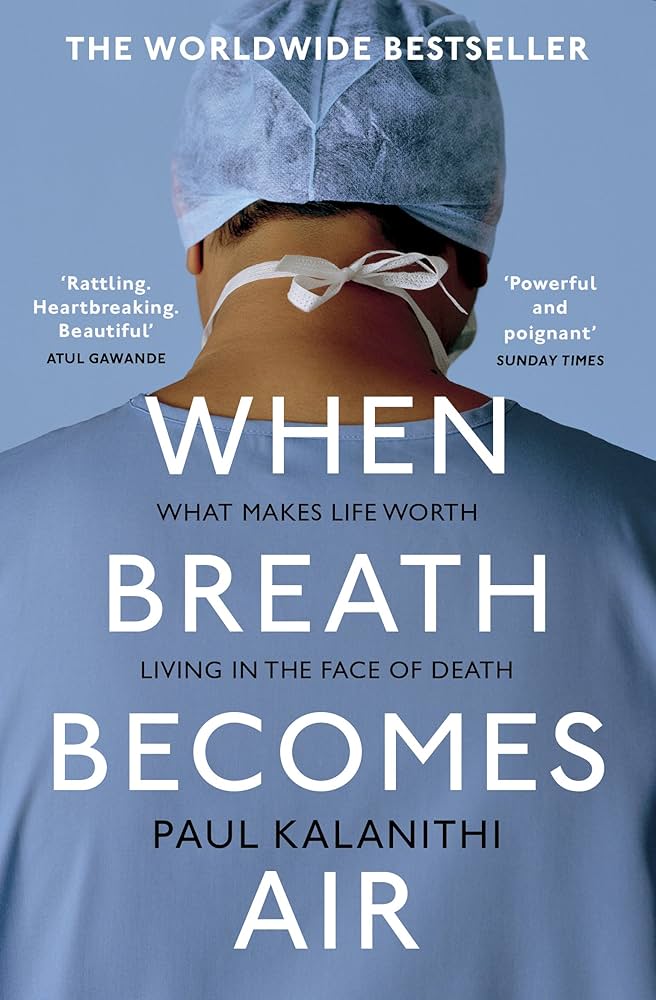
Guns, Germs, and Steel: The Fates of Human Societies by Jared Diamond
Guns, Germs, and Steel: The Fates of Human Societies (subtitled A Short History of Everybody for the Last 13,000 Years in Britain) is a 1997 transdisciplinary non-fiction book by the American author Jared Diamond. The book attempts to explain why Eurasian and North African civilizations have survived and conquered others. It argues against the idea that Eurasian hegemony is due to intellectual, moral, or inherent genetic superiority.
In this “artful, informative, and delightful” book, Jared Diamond convincingly argues that geographical and environmental factors shaped the modern world. Societies that had a head start in food production advanced beyond the hunter-gatherer stage. They then developed writing, technology, government, and organized religion. They also encountered nasty germs and potent weapons of war. These societies adventured on sea and land to conquer and decimate preliterate cultures.
Guns, Germs, and Steel is a major advance in our understanding of human societies. It chronicles how the modern world came to be. The book stunningly dismantles racially based theories of human history.
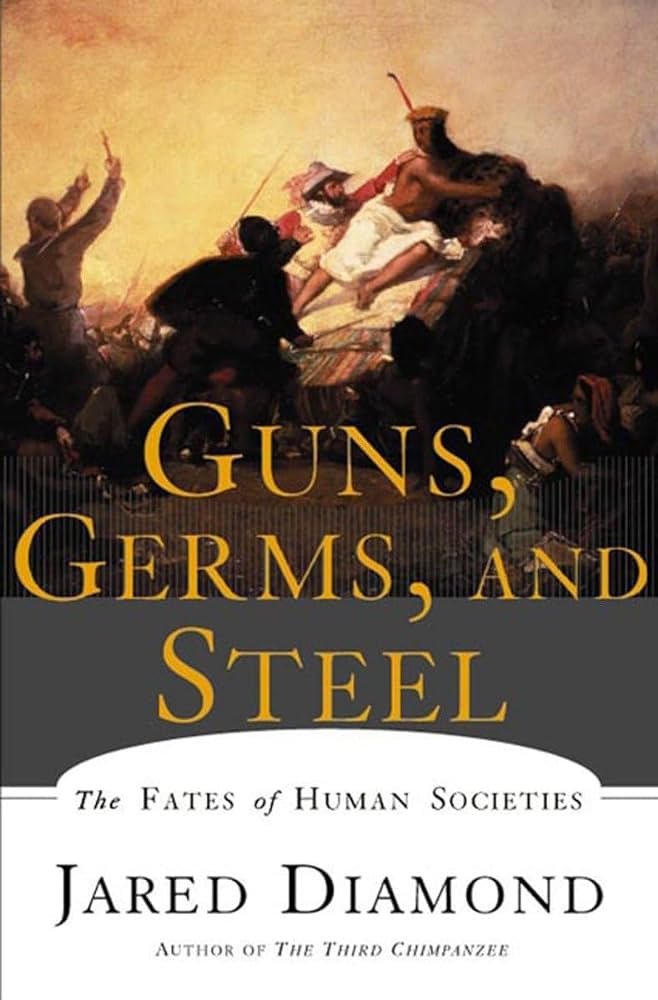
A Brief History of Time by Stephen Hawking
A Brief History of Time: From the Big Bang to Black Holes is a book on theoretical cosmology by the physicist Stephen Hawking. A landmark volume in science writing, Stephen Hawking’s book explores profound questions about the universe. It asks: How did the universe begin, and what made its start possible? Does time always flow forward? Is the universe unending, or are there boundaries? Are there other dimensions in space? What will happen when it all ends?
A Brief History of Time is told in language we all can understand. It plunges into the exotic realms of black holes and quarks. It explores antimatter and “arrows of time,” as well as the big bang and a bigger God. The possibilities in these realms are wondrous and unexpected. With exciting images and profound imagination, Stephen Hawking brings us closer to the ultimate secrets at the heart of creation.
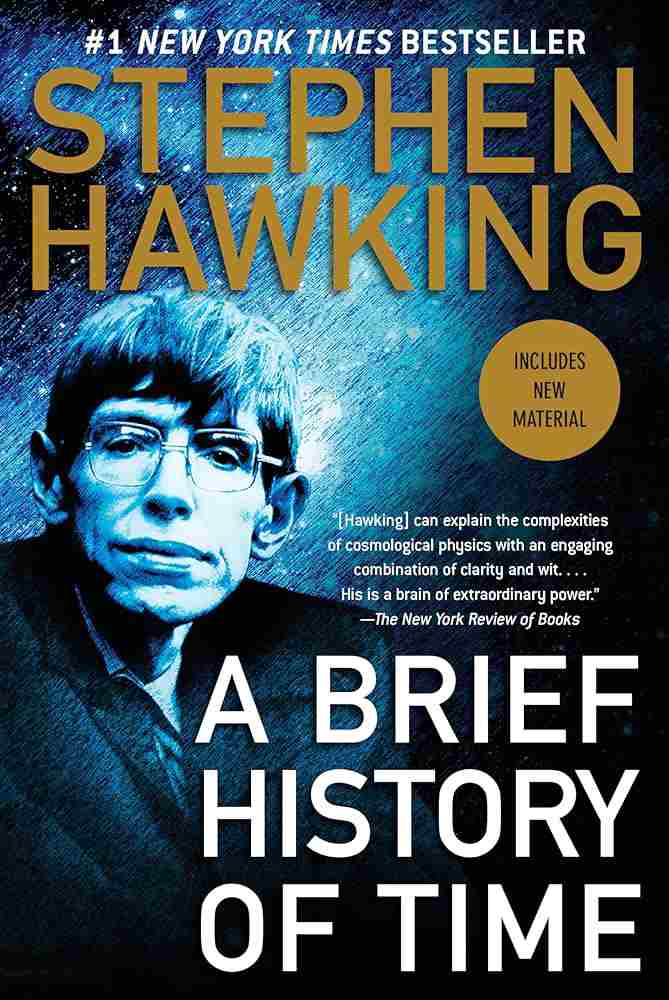
Educated by Tara Westover
Educated is a 2018 memoir by the American author Tara Westover. Westover recounts overcoming her survivalist Mormon family in order to go to college, and emphasizes the importance of education in enlarging her world.
Educated is an account of the struggle for self-invention. It is a tale of fierce family loyalty and of the grief that comes with severing the closest of ties. With the acute insight that distinguishes all great writers, Westover has crafted a universal coming-of-age story that gets to the heart of what an education is and what it offers: the perspective to see one’s life through new eyes and the will to change it.
“You can love someone and still choose to say goodbye to them,” she says now. “You can miss a person every day, and still be glad that they are no longer in your life.”
― Tara Westover, Educated
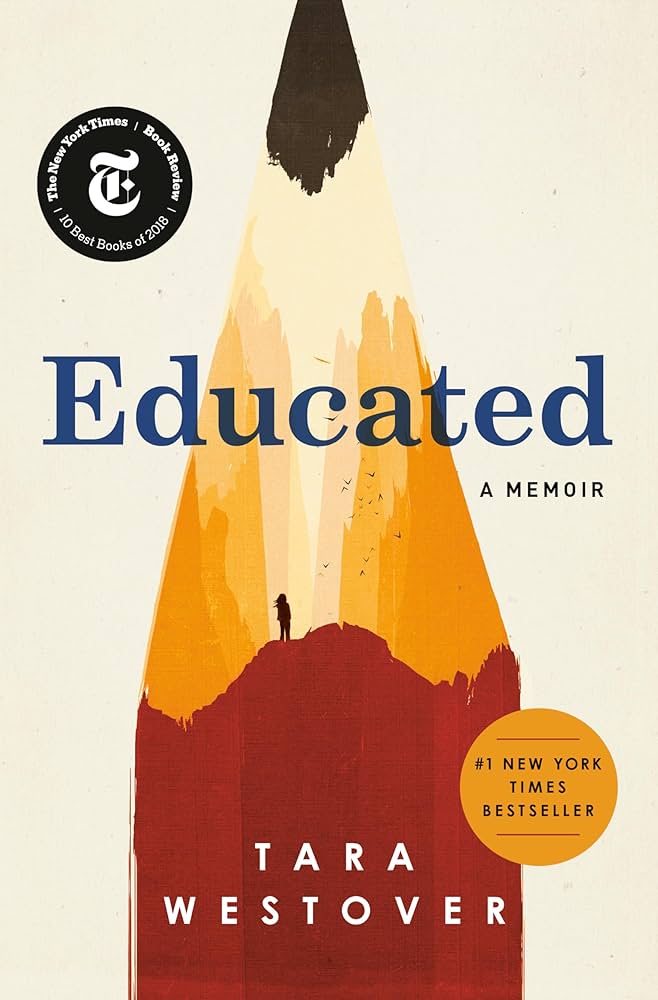
Read also: Discovering the Best Murakami Book to Embrace Nostalgia
A Grief Observed by CS Lewis
A Grief Observed is a collection of C. S. Lewis’s reflections on his experience of bereavement following the death of his wife. The book is compiled from the four notebooks used by Lewis to vent and explore his grief. He illustrates the everyday trials of life without Joy and explores fundamental questions of faith and theodicy.
This powerful study of loss asks: “Where is God?” and explores the feeling of solitude and sense of betrayal that even non-believers will recognize. It explores the processes undergone by the human brain and mind over the course of grieving. The book questions the nature of grief and whether or not returning to normality afterward is even possible within the realm of human existence on earth.
“No one ever told me that grief felt so like fear. I am not afraid, but the sensation is like being afraid. The same fluttering in the stomach, the same restlessness, the yawning. I keep on swallowing. At other times it feels like being mildly drunk, or concussed. There is a sort of invisible blanket between the world and me. I find it hard to take in what anyone says. Or perhaps, hard to want to take it in. It is so uninteresting. Yet I want the others to be about me. I dread the moments when the house is empty. If only they would talk to one another and not to me.”
― C.S. Lewis, A Grief Observed
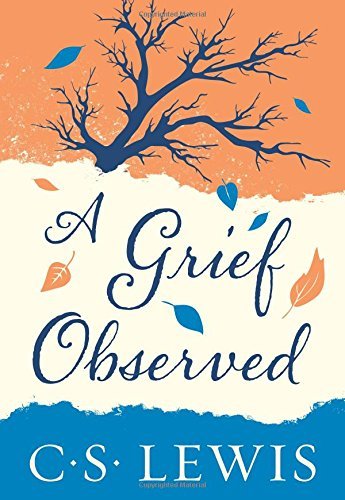
Conclusion
The best nonfiction books of all time are more than just words on a page. They can shape our thoughts and actions through the knowledge, compassion, and insight that we have while reading. We engage with the world and things around us through reading. Whether you’re a lifelong reader or just beginning your nonfiction reading, these essential nonfiction books of all time are sure to leave a lasting impression for you.
As you read the best nonfiction books, you can find more inspiration and enlightenment within our AI tool Arvin. Whether you’re searching for book recommendations, summaries, or discussions about these nonfiction works, Arvin is here to assist you.
FAQs
Nonfiction books are based on facts, real events, and real people. They aim to inform, educate, or provide insight into various topics rather than offering fictional narratives.
Yes, the best nonfiction books span various genres, including memoirs, biographies, history, self-help, science, and essays.
Some classic examples include “Sapiens: A Brief History of Humankind” by Yuval Noah Harari, “The Immortal Life of Henrietta Lacks” by Rebecca Skloot, and “Educated” by Tara Westover.
The best nonfiction books are typically evaluated based on criteria such as impact, critical acclaim, cultural significance, and lasting influence in their respective fields.

